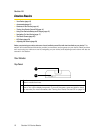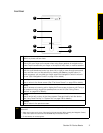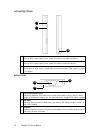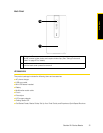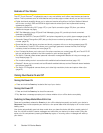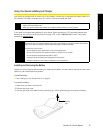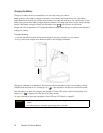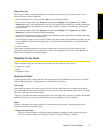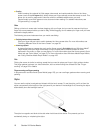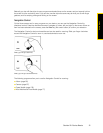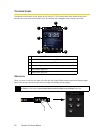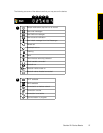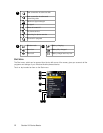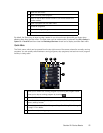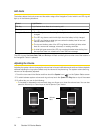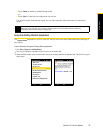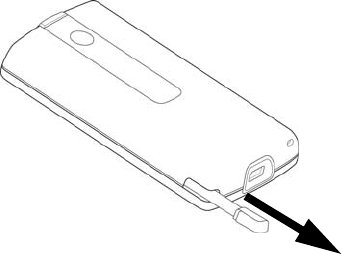
18 Section 2A. Device Basics
ⅷ Scrolling
When browsing the contacts list, Web pages, documents, and certain selection lists on the Home
screen (such as the
All Programs list), slowly swipe your finger vertically across the screen to scroll. This
allows you to scroll by page and to view the content or available selections as you scroll.
People usually move their eyes and not a document when reading. For detailed instructions, see
“Finger-scrolling” on page 52.
Slide
Sliding on the touch screen also involves dragging with your finger, but you need to press and hold your
finger with some pressure before you start to drag. While dragging, do not release your finger until you have
reached the target position.
The following are some instances when you would use sliding:
ⅷ Switching between Home screen tabs
Slide your finger left and right to switch between the Home screen tabs. For more information, see
“Switching Between Tabs on the Home Screen” on page 38.
ⅷ Advancing playback
In players that have a progress bar, such as the Home screen’s Sprint Music tab and Windows Media
®
Player Mobile, slide your finger horizontally on their progress bar to advance forward or move
backward in the music or video you are playing. For more information about the Home screen’s Sprint
Music tab, see “Sprint Music” on page 43. For more information about Windows Media Player Mobile,
see “Using Windows Media Player Mobile” on page 100.
Flick
Flicking the screen is similar to swiping, except that you need to swipe your finger in light, quicker strokes.
This finger gesture is always in a vertical direction, such as when flicking the contacts list. See “Finger-
scrolling” on page 52 for details.
Finger-zooming and finger-panning
In programs such as Album and Opera Mobile (page 132), you can use finger gestures when zooming and
panning.
Stylus
You can use the stylus to navigate and interact with the touch screen. To use the stylus, pull it out from the
stylus compartment at the bottom of the right panel of your device. If the backlight is off, removing the stylus
automatically turns the backlight back on.
The stylus is magnetic and sticks to the side when held close to the device. This prevents you from
accidentally losing or misplacing the stylus.



